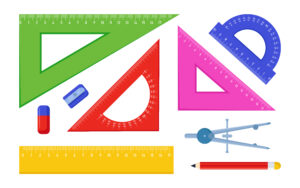How to Take Effective Science Notes: Best Practices for Success

Science is a comprehensive subject that integrates the core principles of Physics, Chemistry, and Biology. It is a vital subject for IGCSE students, providing them with a solid foundation in scientific knowledge and practical skills. Creating effective notes for Combined Science is crucial for mastering the subject and performing well in exams. CKM Academy offers extensive resources and notes for IGCSE students, ensuring they have access to high-quality study materials. Here are some tips to help you create and utilize Combined Science notes effectively.
Organize Your Notes Systematically
Organizing your Combined Science notes systematically is the first step toward effective studying. Here’s how you can do it:
Separate Subjects: Since Combined Science includes Physics, Chemistry, and Biology, create separate sections for each subject in your notebook or digital file. This will help you locate information quickly when revising. This separation also ensures that your notes remain uncluttered, making it easier to focus on one subject at a time.
Use Headings and Subheadings: Clearly mark each topic with headings and subheadings. For instance, under Chemistry, have sections like ‘Atomic Structure,’ ‘Periodic Table,’ and ‘Chemical Bonding.’ This structure will make your notes more readable and easier to navigate. Subheadings also break down large chunks of information into manageable sections, facilitating better understanding.
Date Your Notes: Always date your notes. This helps in keeping track of your study progress and makes it easier to find recent notes for quick revision before exams. Keeping track of dates can also help you in organizing your revision schedule efficiently.
Incorporate Diagrams and Charts
Science is a subject that often requires visual representation to understand complex concepts. Incorporating diagrams, charts, and tables can significantly enhance your understanding and retention.
Draw Clear Diagrams: Whether it’s the human anatomy in Biology or the structure of atoms in Chemistry, drawing clear and labeled diagrams can help you visualize the concepts better. Diagrams should be neat and accurately labeled to serve as effective study aids.
Use Flowcharts: Flowcharts are excellent for processes and cycles, such as the carbon cycle in Biology or the water cycle in Chemistry. They simplify science notes and make the information easier to remember. Flowcharts also help in connecting different steps of a process, showing how each part interacts with the others, making them a great tool for organizing science notes.
Highlight Key Points
Highlighting key points in your Combined Science notes ensures that the most critical information stands out. This is particularly useful during revision.
Use Highlighters: Different colours can be used to denote various types of information. For instance, use yellow for definitions, green for important dates, and pink for key formulas. Color-coding your highlights can help in quickly identifying the type of information you are looking for.
Underline Important Sentences: If you prefer not to use highlighters, underlining important sentences is also effective. It draws attention to significant information without cluttering your notes. Underlining can also be used in conjunction with highlighting to emphasize particularly crucial information.
Summarize Information
Summarizing information helps in reinforcing your understanding and makes it easier to review your notes.
Create Summaries at the End of Each Topic: After completing a topic, write a summary in your own words. This practice aids in solidifying your understanding and provides a quick review reference. Summarizing also helps in condensing information, making it easier to recall.
Use Bullet Points: Bullet points are great for summarizing information concisely. They help in breaking down complex information into manageable chunks. Bullet points can also help in listing important steps or components in a process or concept.
Practice Past Papers and Questions
Practicing past papers and questions is essential for applying the knowledge you have gained and for familiarizing yourself with the exam format.
Solve Past Papers Regularly: CKM Academy provides access to a variety of IGCSE past papers. Regularly solving these papers will help you understand the exam pattern and the types of questions asked. This practice can also highlight areas where you need further study.
Time Management: Practice solving past papers within the allotted time to improve your time management skills during exams. Efficient time management can significantly impact your exam performance by ensuring you complete all questions within the given time.
Use Online Resources
In addition to your notes, utilize online resources for a more comprehensive understanding of Combined Science.
Access CKM Academy’s Resources: CKM Academy offers a wealth of online resources, including science notes and past papers. Make the most of these materials to enhance your study. These resources are tailored to align with the IGCSE curriculum, providing relevant and updated content. Additionally, interactive study guides and expert tips are available to help you understand complex topics. Utilize these tools to maximize your exam preparation and achieve academic success.
Regular Revision
Regular revision is key to retaining information and ensuring that you are well-prepared for exams.
Schedule Revision Sessions: Create a revision timetable that allows you to revisit each subject regularly. Consistency is crucial for long-term retention. Scheduled revision ensures that you are not cramming all information at the last minute.
Use Flashcards: Flashcards are an effective tool for quick revisions. Write down important formulas, definitions, and key points on flashcards and review them frequently. Flashcards can be used anywhere, making them a convenient revision tool.
Stay Updated with the Curriculum
The IGCSE curriculum may undergo updates and changes. Staying updated with the latest syllabus is important to ensure that your notes are relevant.
Check CKM Academy for Updates: CKM Academy regularly updates its resources to align with the latest IGCSE syllabus. Ensure that you are using the most current materials. Staying updated ensures that you are studying the right content and not outdated information.
Follow Examination Boards: Keep an eye on announcements from examination boards like Cambridge Assessment International Education for any changes in the syllabus or exam format. Official updates can provide important information regarding changes in exam patterns or new topics added.
To access the other past papers for IGCSE Subjects such:
- Additional Math (0606) – Click Here
- Math Extended (0580) – Click Here
- Biology (0610) – Click Here
- Physics (0625) – Click Here
- First English Language (0500) – Click Here
- English as Second Language (0510) – Click Here
- International Mathematics (0607) – Click Here
- Accounting (0452) – Click Here
- Business Studies (0450) – Click Here
- Economics (0455) – Click Here
- Combined Science (0653) – Click Here
- Chemistry (0620) – Click Here
- All Papers – Click Here
Ending Remarks
Creating and utilizing effective Combined Science notes is an ongoing process that involves organization, visualization, summarization, and regular practice. By following these tips, you can enhance your understanding of Science and improve your performance in exams. CKM Academy provides comprehensive resources and notes to support IGCSE students in their studies. Utilize these resources and integrate these tips into your study routine to achieve success in Science. Remember, consistent effort and strategic revision are the keys to mastering this subject.
For more detailed notes and resources on Combined Science, visit CKM Academy’s website and explore the extensive materials available to aid your IGCSE preparation.
Image Reference: Freepik
Disclaimer: All trademarks, logos, and brand names are the property of their respective owners. All company, product, and service names used in this website are for identification purposes only. Use of these names, trademarks, and brands does not imply endorsement.





